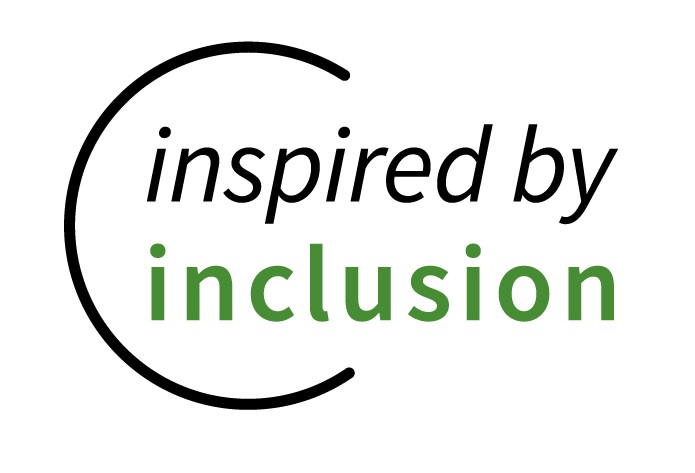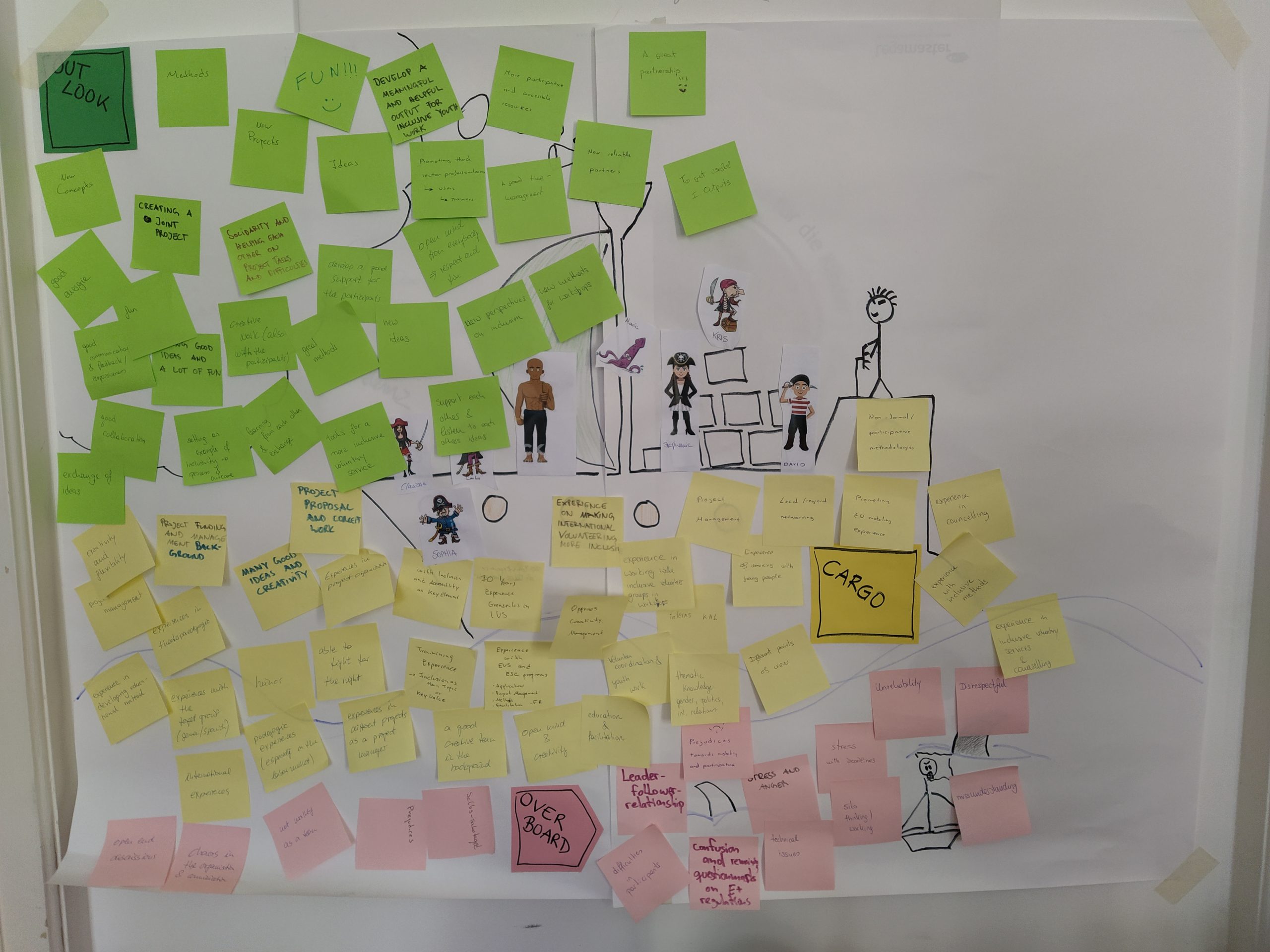International mobility programmes are not equally accessible to everyone. Usually, young people with more educational opportunities benefit more from them, while young people with disabilities, less academic background or at risk of social exclusion have much more limited access and are at a disadvantage as participants. Furthermore, the use of formal methodologies used in international mobilities makes it difficult for these young people to participate in conditions of equality and inclusion. Furthermore, these limitations are even more evident in the area of facilitation, where such people with social disadvantages or specific profiles are excluded from taking part as trainers or facilitators and others cannot benefit from their knowledge or life experiences.
Therefore, INSPIRED by INCLUSION aims to promote young people by training them and giving them tools for the international field, helping them to become trainers, facilitators or educational entrepreneurs, paying special attention to those with different abilities (intellectual, physical, sensory disabilities, etc.), as well as with learning difficulties (language difficulties, early school leavers, low grades, etc.). To achieve this, the entities involved in the project will develop materials such as a toolkit with inclusive methodologies for the design of training in relation to international mobility, as well as a manual to train young people with educational disadvantages or functional diversity.
The European Commission’s support for the production of this publication does not constitute an endorsement of the content, which reflects the views only of the authors, and the Commission cannot be held responsible for any use which may be made of the information contained therein.

Dates: 01/02/2020 to 30/02/2022
Partner entities:

- Manual of methodologies for volunteering and international encounters (click here to download in spanish, english or german): Many methods and group dynamics used in the preparation of volunteering often do not take an inclusive perspective. This is also the case in many global learning seminars or international (youth) meetings. This hinders the active and autonomous participation of people with disabilities or educational difficulties. The aim of this handbook for youth workers, teachers and educators is to present a range of methods based on playful, non-formal, participatory and group dynamic techniques, which can be applied and adapted in different ways.
- Self-learning guide for trainers from backgrounds with fewer opportunities (click here for download in spanish, english or germany): A simple and didactic guide for potential new facilitators, trainers and managers (especially from backgrounds at risk of exclusion) as well as practitioners and volunteers in charge of training programmes who want to make them more participatory. Get to know yourself as a trainer, learn how to set up a training and discover the best way to encourage participation in your learning activities.
- To break the educational exclusivity of international mobility and training.
- Promote the participation of people with disabilities or educational disadvantages in the design of non-formal training methodologies.
- To give and show new opportunities of participation to young people with functional diversity and/or at risk of exclusion (as participants or trainers of others).
- To develop and promote new approaches to non-formal educational work at European level in the field of international mobility.
- First transnational coordination meeting in Austria (February 2020).
- Elaboration and development of methodologies and practical part (March to December 2020).
- Practical conceptualisation of the manual for trainers (March to December 2020).
- Second transnational online coordination meeting (October 2020).
- Development of the content of the manual (January 2021 to July 2021).
- Testing and improvement phase of the created material (March 2021 to November 2021).
- Third transnational coordination meeting and first training course in Germany (June 2021).
- Fourth transnational coordination meeting and second training course in Spain (October 2021).
- Revision of project materials, validation and final publication (November 2021 to April 2022).
- Fifth transnational coordination meeting in Austria (March 2022).
- Project dissemination events in partner countries (November 2021 to June 2022).
- Project review and finalisation (July 2022).

